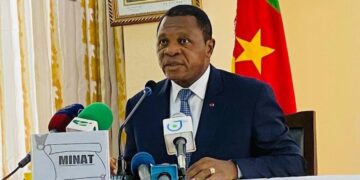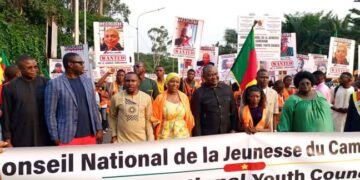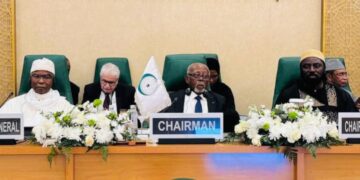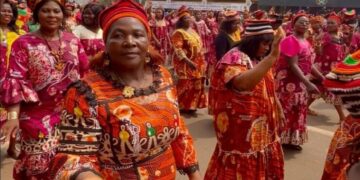The compensation exercise, which started on Sunday, February 16, continues today under the watchful eye of Territorial Administration Minister Paul Atanga Nji, who will oversee the distribution of compensation to a total of 4,351 rice farmers in Maga subdivision for the period they will not be cultivating rice.
The payments, facilitated by the government and sponsored by the World Bank, are being supervised by Territorial Administration Minister Paul Atanga Nji. Each farmer is entitled to 200,000 francs per half-hectare of land, following a directive from President Paul Biya. The project, led by the Rice Expansion and Modernization Corporation (CEMRI), aims to improve rice production perimeters. Farmers are required to present an ID card before collecting their payments. Minister Atanga Nji stressed that the full amount must be paid to beneficiaries, dismissing a previous suggestion to withhold 80,000 francs as forced savings. “The head of state instructed that we must pay the 200,000 francs initially agreed between both parties.
It was not accepted that there should be a reduction of 80,000 francs. No one can save another person’s money against their will,” he stated. The compensation process in Maga follows a similar initiative in Yagoua, where 8,750 farmers were paid. Minister Atanga Nji reported that recipients in Yagoua were satisfied and had expressed their gratitude to President Biya. Initially, farmers were required to open bank accounts to receive their funds. However, the president opted for direct cash payments, acknowledging the difficulties rural populations face with banking systems. “For someone who has operated for 30 years without a bank account, being asked to open one creates fear. No matter how much you explain that there will be no charges, they remain skeptical,” the minister explained. Many farmers expressed appreciation for the simplified process.
Amadu Eveli, a beneficiary, remarked, “This money will help many people, including families in need.” Another recipient, Sergio, added, “I thank Papa Paul Biya for this support.” Mayor of Maga, Ibrahim Boka, acknowledged the initiative’s positive impact. “The social climate was not good, but the president’s decision to ensure direct payments has helped restore peace and stability,” he said. The payments in Maga are taking place alongside the final phase of the Yagoua compensation process, which lasted three days. Traditional rulers, including the Lamidos of Maga and Pouss, have monitored the process and reassured Minister Atanga Nji that the initiative would receive strong backing in the upcoming elections. “This gesture from the head of state will be met with overwhelming support,” a local leader affirmed.
By the time the compensation exercise concludes, a total of 8,749 farmers will have benefited. Minister Atanga Nji reiterated that the government remains attentive to the concerns of its citizens. “This proves that President Paul Biya forgets no one and considers the realities of the population,” he concluded.





































































